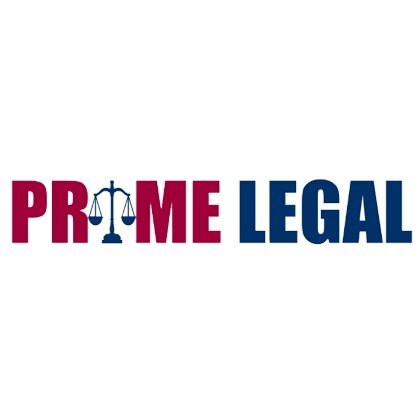Best Structured Finance Lawyers in Kathmandu
Share your needs with us, get contacted by law firms.
Free. Takes 2 min.
List of the best lawyers in Kathmandu, Nepal
About Structured Finance Law in Kathmandu, Nepal
Structured Finance refers to complex financial transactions and instruments designed to address significant financing needs that cannot be solved with standard lending products. In Kathmandu, Nepal, Structured Finance often includes securitization, project finance, collateralized debt obligations, and customized financial solutions involving multiple parties. These transactions frequently involve banks, financial institutions, large businesses, and investment entities, all operating within the regulatory framework established by Nepal Rastra Bank and other governmental authorities. The primary objective is to facilitate access to credit and liquidity, distribute risk, and support development projects in various sectors such as infrastructure, real estate, and manufacturing.
Why You May Need a Lawyer
Structured Finance arrangements are legally and financially complex. Engaging a lawyer is essential in the following situations:
- Negotiating and drafting Structured Finance agreements and related documentation
- Ensuring compliance with local banking and securities regulations
- Advising on risk allocation and mitigation strategies
- Dealing with cross-border financial transactions and foreign investments
- Structuring project finance for large infrastructure or real estate developments
- Restructuring debt or securitizing assets
- Resolving disputes arising from misinterpretation or breach of financing agreements
- Navigating tax implications specific to Structured Finance deals
- Helping startups or SMEs access structured finance solutions
- Guiding public-private partnerships through legal complexities
Local Laws Overview
Kathmandu, as the financial hub of Nepal, operates under a number of laws and regulations governing Structured Finance. Key aspects include:
- The Banks and Financial Institutions Act (BFIA), which regulates the formation and operation of banks and financial institutions
- The Securities Act, which outlines securities issuance, trading, and disclosure requirements
- Guidelines issued by Nepal Rastra Bank, particularly on capital adequacy and risk assessment for complex lending products
- Foreign Investment and Technology Transfer Act, relevant for cross-border transactions and foreign participation
- Central Bank directives on project finance and asset securitization
- The Companies Act, which impacts structuring joint ventures and special purpose vehicles (SPVs)
- Tax laws as they apply to interest, dividends, capital gains, and transaction structuring
It is important to recognize the evolving nature of regulatory requirements in Nepal, including recent updates in prudential guidelines and disclosure obligations for financial institutions. Client due diligence, anti-money laundering protocols, and foreign currency controls are also critical in most Structured Finance transactions.
Frequently Asked Questions
What is Structured Finance and how is it different from traditional lending in Nepal?
Structured Finance involves customized financial solutions that go beyond simple loans. It may include multiple forms of collateral, risk-sharing arrangements, or the use of special purpose vehicles. Traditional lending typically involves a bank loan with standard terms, while Structured Finance can address unique and larger financing needs.
Which parties are commonly involved in Structured Finance transactions in Kathmandu?
Common participants include banks, financial institutions, institutional investors, project developers, private equity funds, law firms, and sometimes government agencies in the case of infrastructure projects.
Are foreign investors allowed to participate in Structured Finance deals in Nepal?
Yes, but they must comply with the Foreign Investment and Technology Transfer Act and obtain necessary approvals from Nepal Rastra Bank and relevant ministries, depending on the sector and deal structure.
What regulations must banks and financial institutions adhere to in Structured Finance?
Banks and financial institutions must comply with the BFIA, Securities Act, central bank guidelines, anti-money laundering requirements, and reporting standards set by Nepal Rastra Bank. Prudential norms for exposure limits and risk assessment also apply.
What is the role of a Special Purpose Vehicle (SPV) in Structured Finance?
An SPV is a separate legal entity created to isolate financial risk, often used in asset securitization, project finance, or for holding specific assets during the structure of a large financial transaction.
Does Nepal have laws regarding asset securitization?
While there are no dedicated securitization laws as in some developed markets, guidelines from Nepal Rastra Bank and provisions in the Securities Act govern securitization, including disclosure, registration, and risk management.
What tax considerations are relevant in Structured Finance transactions?
Tax implications may include withholding tax on interest, capital gains tax, and value-added tax on certain services. Proper structuring and early legal advice are essential to optimize tax efficiency and compliance.
How does a legal advisor assist in cross-border Structured Finance deals?
A legal advisor ensures compliance with Nepal’s regulations, facilitates communication with foreign parties, helps secure approvals, structures transactions to mitigate risks, and drafts agreements that protect the interests of local stakeholders.
Can individuals access Structured Finance products, or are they limited to large corporations?
While Structured Finance is mainly targeted at corporations, project sponsors, and institutional clients, some products like mortgage-backed securities may be indirectly accessible to individuals through investment opportunities.
What should I do if a dispute arises in a Structured Finance transaction?
Contact a qualified lawyer immediately to review the contract terms, advise on dispute resolution options such as arbitration or litigation, and represent your interests in negotiations or proceedings.
Additional Resources
Here are some key resources and organizations relevant to Structured Finance in Kathmandu, Nepal:
- Nepal Rastra Bank - Central financial regulatory authority
- Office of the Company Registrar - For company and SPV registration
- Securities Board of Nepal (SEBON) - Regulates securities issuance and trading
- Investment Board Nepal - Facilitates large-scale and cross-border investments
- Ministry of Finance - For information on fiscal policies and incentives
- Nepal Bar Association - For finding experienced lawyers in Structured Finance
Next Steps
If you need legal assistance regarding Structured Finance in Kathmandu, consider the following steps:
- Gather all relevant documents and details about your intended financial transaction or project
- Consult with a qualified lawyer who specializes in banking, finance, or securities law
- Clarify your objectives, timelines, and any specific regulatory concerns with your lawyer
- Ensure transparent communication with all parties involved in the transaction
- Stay updated with changes to local laws and regulations that may impact your Structured Finance deal
- Consider seeking initial guidance from relevant governmental bodies or professional associations as listed above
Taking timely legal advice can help you minimize risks, ensure compliance, and achieve the best outcomes in your Structured Finance endeavors in Kathmandu, Nepal.
Lawzana helps you find the best lawyers and law firms in Kathmandu through a curated and pre-screened list of qualified legal professionals. Our platform offers rankings and detailed profiles of attorneys and law firms, allowing you to compare based on practice areas, including Structured Finance, experience, and client feedback.
Each profile includes a description of the firm's areas of practice, client reviews, team members and partners, year of establishment, spoken languages, office locations, contact information, social media presence, and any published articles or resources. Most firms on our platform speak English and are experienced in both local and international legal matters.
Get a quote from top-rated law firms in Kathmandu, Nepal — quickly, securely, and without unnecessary hassle.
Disclaimer:
The information provided on this page is for general informational purposes only and does not constitute legal advice. While we strive to ensure the accuracy and relevance of the content, legal information may change over time, and interpretations of the law can vary. You should always consult with a qualified legal professional for advice specific to your situation.
We disclaim all liability for actions taken or not taken based on the content of this page. If you believe any information is incorrect or outdated, please contact us, and we will review and update it where appropriate.

















